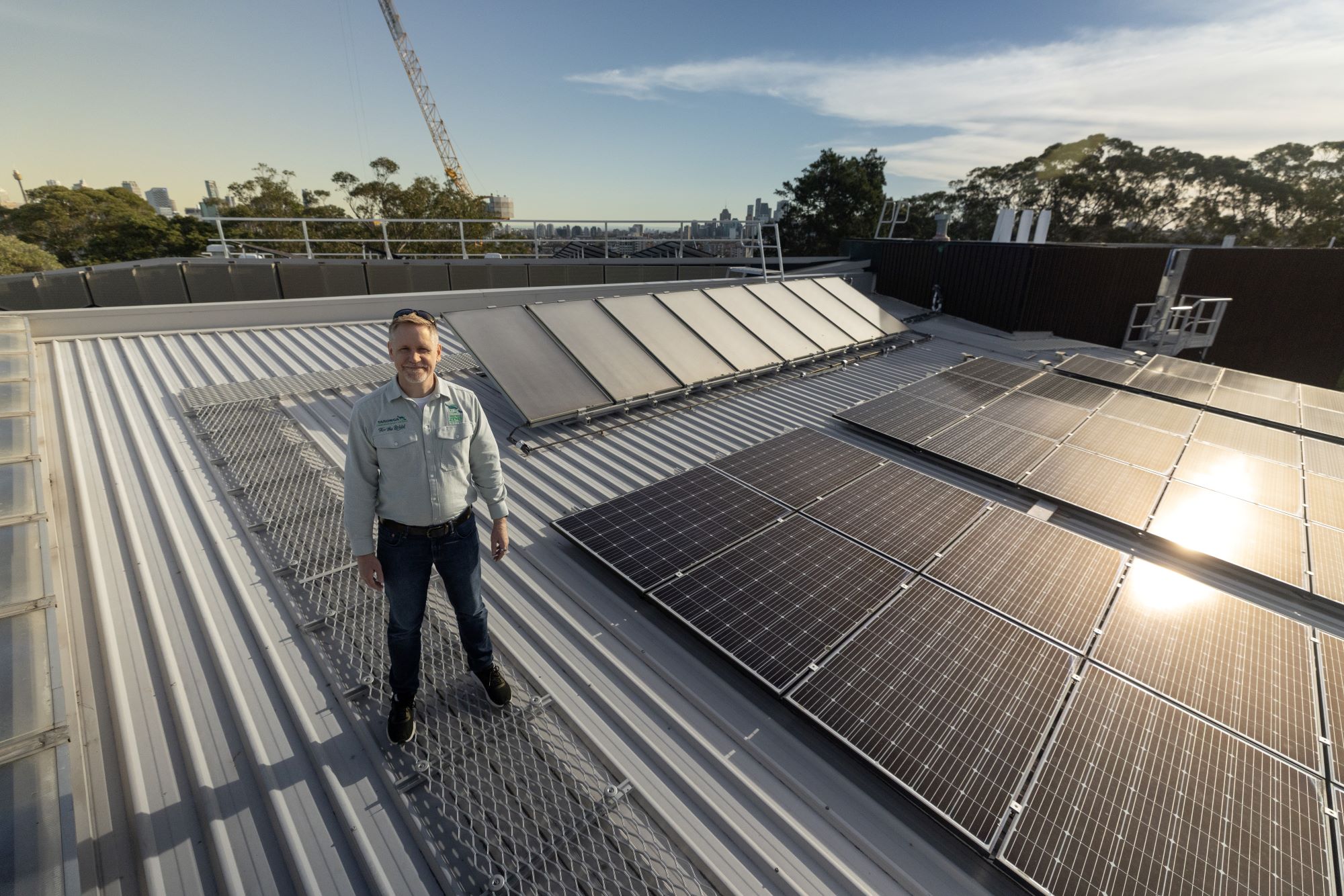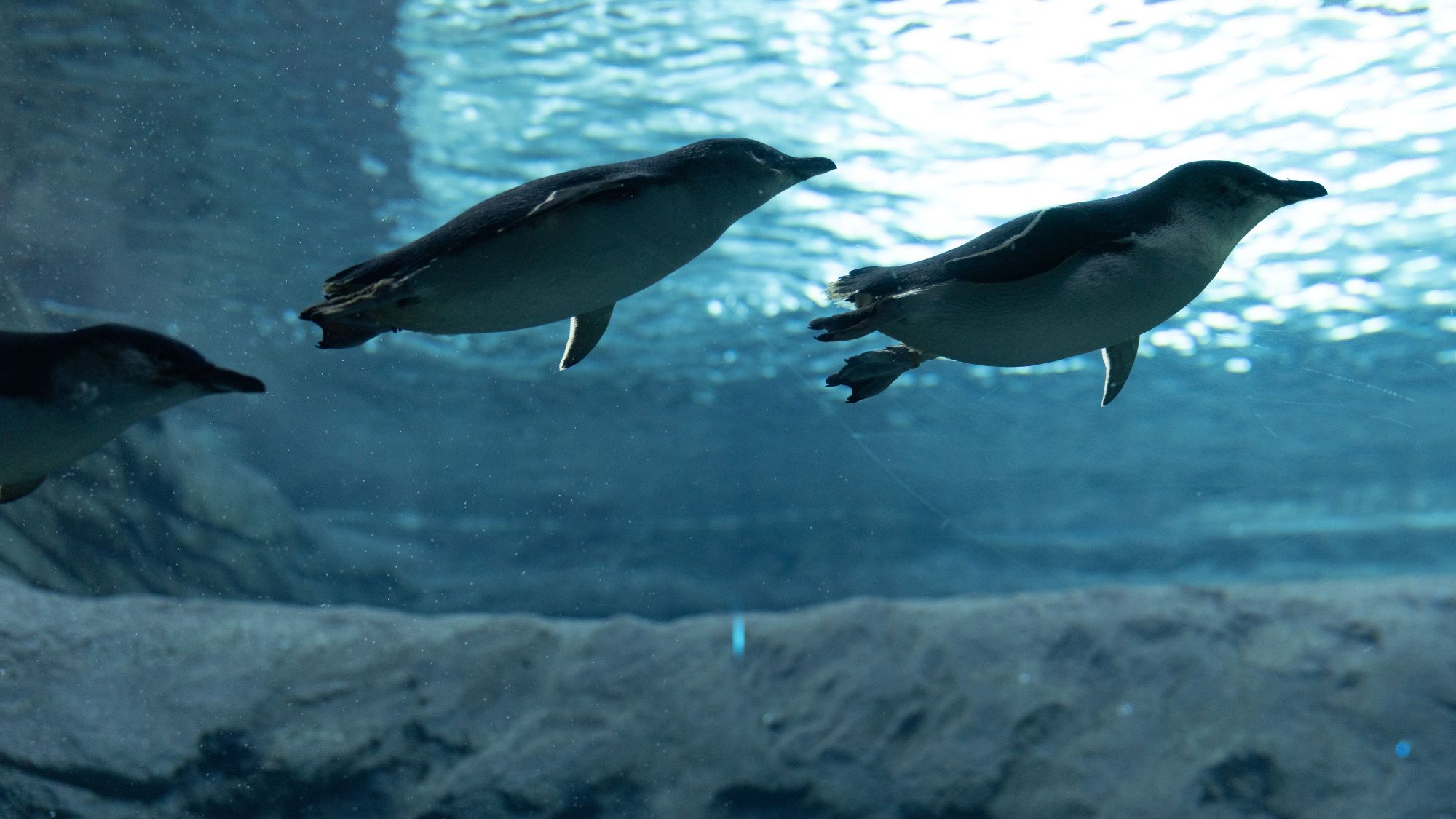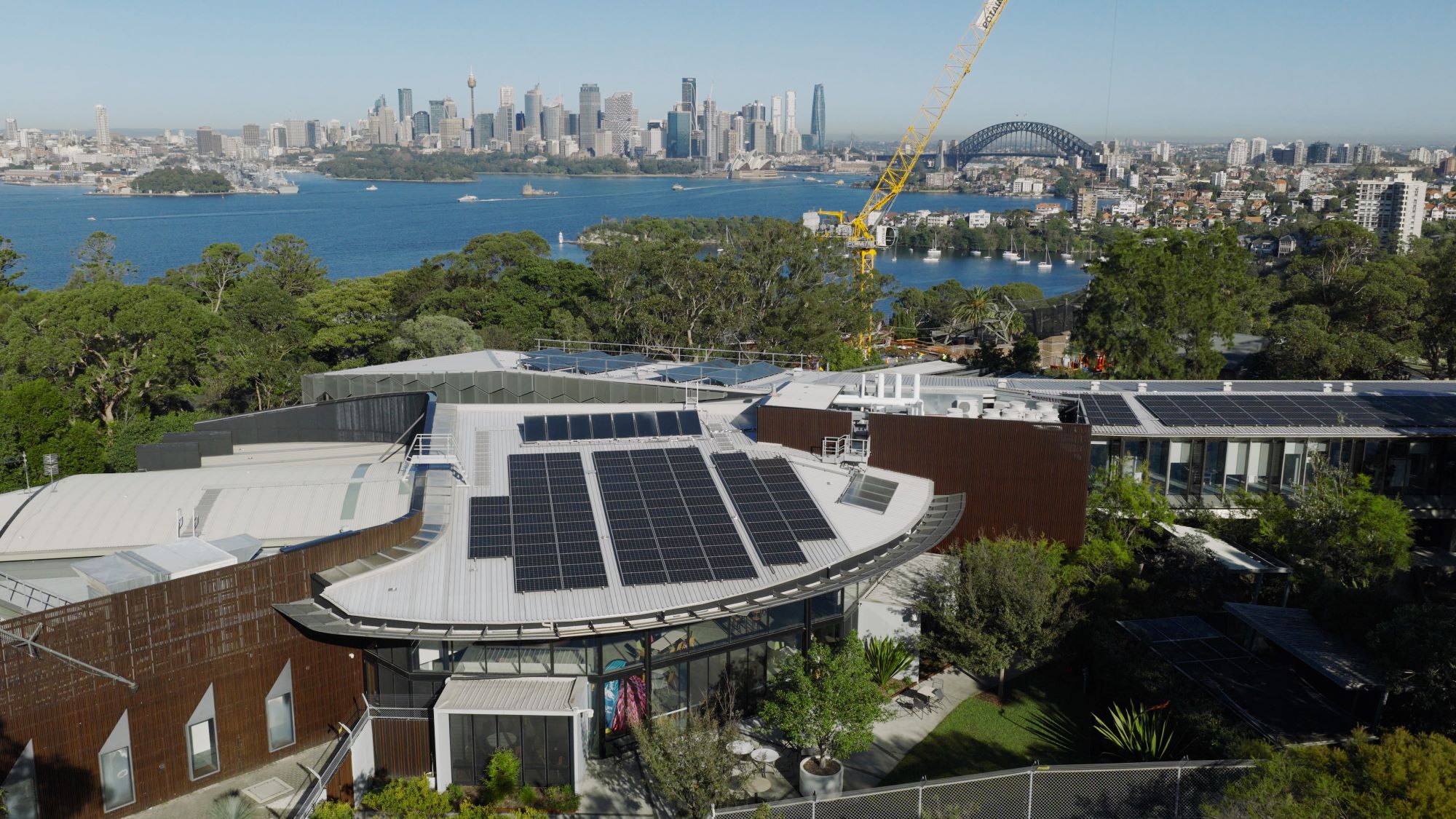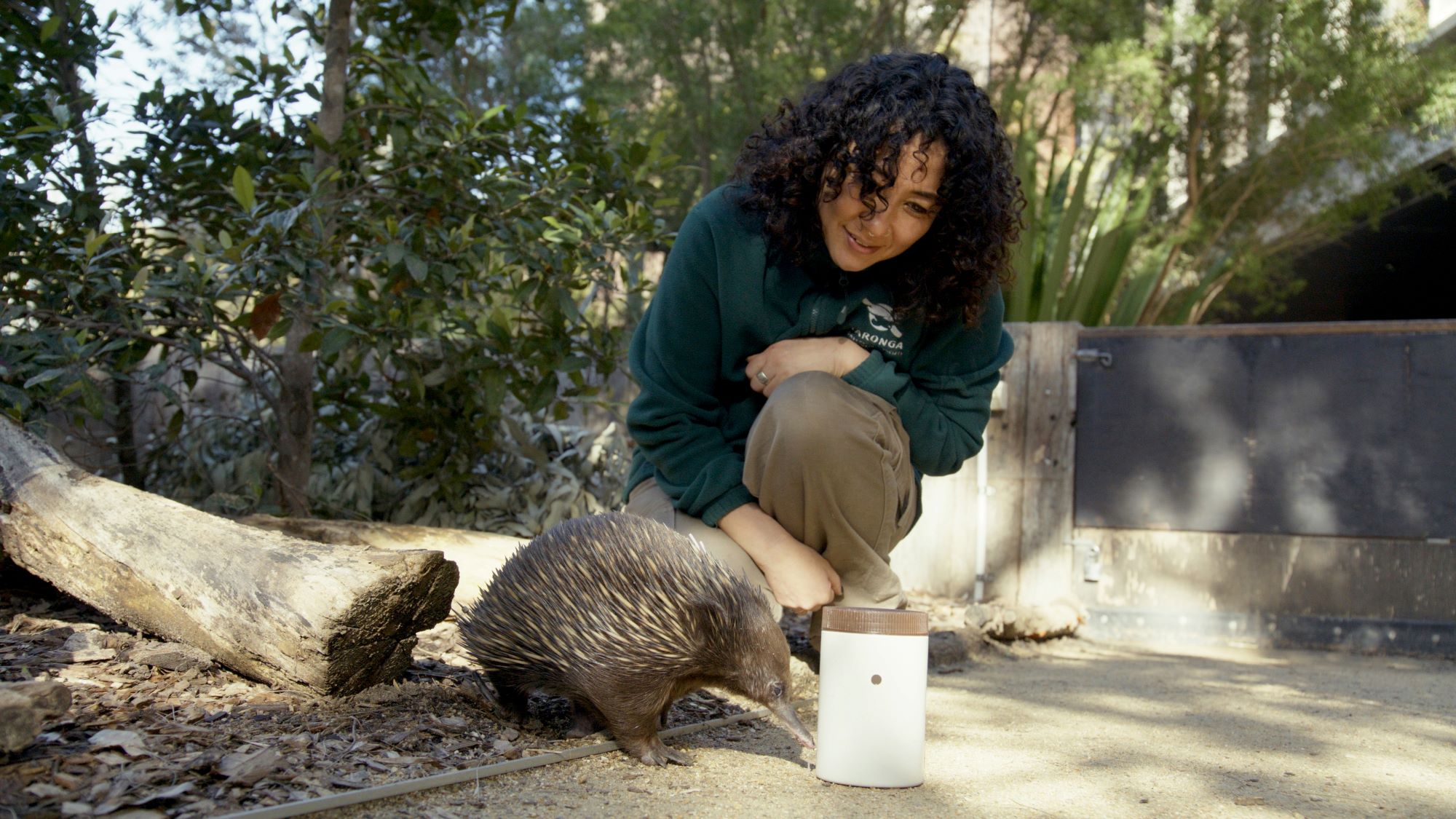Taronga Conservation Society Australia is on a mission to inspire visitors by leading the way on climate action and emissions reduction. Taronga is transforming its operations to put sustainability front and centre.
“We recognise that climate change is one of the biggest threats to people, nature and prosperity,” says Sustainability Manager, Jon Shaw. “We want to be leaders in this space.”
On track to net zero
Taronga is implementing a range of sustainability initiatives across carbon reduction, energy, waste, water and procurement.
Their ambitious targets include:
- reaching net zero emissions by 2030
- using 100% renewable energy by 2030
- diverting 90% of waste from landfill by 2025
- having zero net increase in water use from 2025.
“We use a lot of energy here for heating, cooling, and pumping,” says Jon.
“We have over 600 kilowatts of solar panels across our 2 zoos. We also have a contract with Red Energy, where the rest of our electricity comes from a solar farm near Dubbo or, at nighttime, from hydro. This has helped us reduce our emissions by 53%. So, we're well on track to reaching net zero by 2030.”
A holistic approach
While Taronga has reached 100% renewable energy, it must implement various sustainability initiatives across the zoo to meet its net zero targets.
“We measure our emissions each year,” says Jon. “And we’re already seeing reduced emissions from energy, water and waste management.”
“What we've worked out is that we have remaining big sources of carbon emissions: construction, the food we sell at the cafes and restaurants, plus the food we give to the animals in our care.”
Taronga is ensuring animals get the nutrition they need, while also reducing carbon emissions from its supply chain.
“With advice from the nutritionist on site,” says Jon, “we’re looking at each animal’s diet to not only reflect what they would eat in the wild, but also reduce carbon into the atmosphere.”
The zoo has recently modified the diet of its echidnas, who can eat up to 10,000 ants and termites a day. The echidnas’ diet “used to be mainly ground meat, kangaroo meat,” says zookeeper, Klay Cameron, “but it’s been completely re-developed by our nutritionist. It still has all the proteins they need, but it's more plant-based. It's better for them nutritionally and doesn’t have the same carbon impact as the original meat diet.”
Educating for change
Recognising that behaviour change and education are critical to securing a safe and sustainable future, Taronga is using its influence to shape the hearts and minds of young people who visit the zoo.
“Last year, we had over 1.8 million visitors across our 2 zoos and we trained over 90,000 students,” says Jon Shaw. “We have a range of different climate change programs, one of which is called Climate Heroes. It’s aimed at kids that visit the zoo, and it's really trying to change their behaviours for transport, waste, fashion, and the economy.”
A sustainability blueprint for zoos worldwide
According to the Science Based Targets Initiative (SBTi), close to 70% of the global economy is now committed to net zero by 2050. Governments and large organisations are increasingly integrating sustainability strategies into core business to achieve their net zero commitments.
As Taronga's sustainability journey has been extensive and holistic, it has co-led the development of a Decarbonisation Guide for 1,300 zoos around the world. This will enable other zoos to draw from Taronga’s experience and offer tested pathways for emissions reductions.




